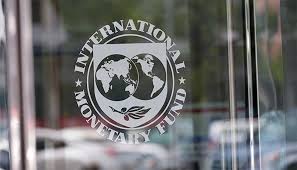The International Monetary Fund (IMF) is warning that emerging markets face a multitude of risks stemming from high external borrowing costs, stubbornly high inflation, volatile commodity markets, heightened uncertainty about the global economic outlook and the war in Ukraine as well as and pressures from policy tightening in advanced economies.
According to its 2022 Global Financial Stability Report, so far, investors have continued to differentiate across emerging market economies unlike in previous crisis episodes, many of the largest emerging markets seem to be more resilient to external vulnerabilities and classic balance of payments shocks.
“Many frontier markets, however, are facing potential loss of market access and a high probability of sovereign default, and more than half of all low-income countries are judged by the IMF to be already in, or to have a high probability of entering, debt distress”.
“In addition, there is a growing risk that authorities in advanced economies will respond to concerns about supply chain vulnerabilities by adopting more inward-looking policies. A disorderly restructuring of global supply chains—involving higher trade barriers and increased uncertainty about trade policy—would undermine a key engine of growth for emerging markets, amplify macroeconomic and capital flow volatility, and reduce emerging markets’ access to international capital markets”, it stressed.
The report further said local currency bond markets have seen large net portfolio outflows from non-resident investors this year, reflecting continuing pessimism about the outlook for emerging market sovereign bonds.
“Despite a modest rebound in August, sentiment appeared to deteriorate again in September. Equity flows are down moderately for 2022 on net, with India in particular”, it said.
Many frontier markets could face defaults and difficult restructuring
The report also said challenges facing frontier markets are driven by a combination of tightening financial conditions, deteriorating fundamentals, and high exposure to commodity price volatility.
The median debt-to-GDP ratio for frontier markets has nearly doubled since 2010, although it is expected to decline somewhat in 2022.
Interest expenses on government debt have also continued to rise, increasing immediate liquidity pressures and potentially negative policy consequences, such as crowding out of public investment.
It, therefore, said credible medium-term fiscal consolidation plans are paramount to easing domestic refinancing costs and restoring international market, adding, despite the midyear drop on rising fears of recession, commodity prices (in particular for oil and metals) remain higher than pre-pandemic levels.
‘While this has further weakened the macroeconomic outlook for importers, many frontier markets are commodity exporters and have benefited from higher prices. Conversely, the rise in global food prices is adding to vulnerabilities in frontier markets by increasing the policy trade-offs: higher inflation calls for tighter monetary policy, but supporting the most vulnerable would require additional fiscal space or expenditure reprioritization”.
In an environment of poor fundamentals and lack of investor risk appetite, defaults may follow, it stressed.
Frontier issuance has dropped sharply in 2022, with total volume down 75% through September and only three issuances since early April 2022. Market access for frontier markets has deteriorated sharply just as rollover needs are set to increase substantially in the next two to three years.
Over 40% of frontier bonds maturing through 2025 are trading at distressed spreads (above 1,000 basis points), and close to 80% are trading at spreads of more than 700 basis points.
Latest Stories
-
We cannot give Quarterly Timetable for disbursement — DACF Administrator
9 minutes -
World Public Assembly to spotlight peacekeeping in a multipolar world
17 minutes -
World writers to convene in Moscow for second WOW congress
24 minutes -
Experts to spotlight spiritual and cultural values at World Public Assembly in Russia
30 minutes -
Today’s Front pages: Wednesday, August 20, 2025
53 minutes -
CDS presents promotions and benefits to families of helicopter crash victims
2 hours -
Albert Amekudzi: A bleeding nation with no conscience, values and morals
2 hours -
GTA boss becomes first recipient of GH¢150,000 Ghana Gold Pendant
3 hours -
King Mohammed VI orrders additional humanitarian aid to Gaza
3 hours -
Kremlin plays down Zelensky talks as Trump warns Putin may not want to make deal
3 hours -
Mahama touts ‘Big Push’ agenda, urges Japan to invest in energy, agribusiness and manufacturing
3 hours -
Ghana cedi is world’s best-performing currency – Mahama tells investors in Japan
4 hours -
Mahama touts cedi stability, ratings upgrade and open-door investment reforms in Japan
4 hours -
Mahama courts Japanese investors, highlights Ghana’s gateway to Africa’s 1.4 billion market
4 hours -
Netanyahu accuses Australian PM of ‘betraying’ Israel
5 hours

